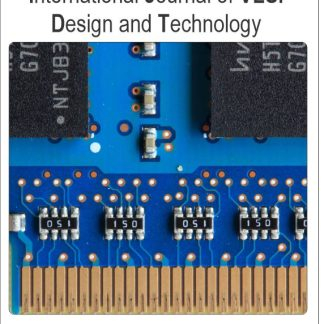

The curriculum for the two new programs, BTech Electronics (VLSI Design and Technology) and Diploma in IC Manufacturing, was released by the All India Council for Technical Education (AICTE), and will be offered by any AICTE-affiliated colleges/universities/technical institutions.
New Delhi: The curriculum for two new programs, BTech Electronics (VLSI Design and Technology) and Diploma in IC Manufacturing, has been announced by the All India Council for Technical Education (AICTE).
The courses will be made available on the AICTE portal.
These courses may be offered at any number of AICTE-affiliated colleges/universities/technical institutions.
This degree will give a variety of job opportunities in both global and Indian firms, with excellent compensation incentives for Indian students.
Union Minister for Electronics and Information Technology, Ashwini Vaishnaw highlighted, "The PM approved the Semicon India program on Jan 1, 2022. In consultation with the Semiconductor industry and all the experts, a curriculum has been developed and today AICTE within the Ministry of Education has launched two new programs."
She also added saying, "First is a BTech program in semiconductors and second is a diploma program in semiconductors. These two programs will help us create a very good semiconductor talent throughout the engineering ecosystem. I would encourage the youngsters, students and industries to participate in the programs."
Prof. T G Sitharam, Chairperson of AICTE, introduced the Model Curricula on Semiconductor Design and IC Manufacturing for UG and Diploma students in technical institutions. He presented his experiences as an IISc faculty member and afterwards as an academic administrator at IIT Guwahati. He highlighted that the sort of education that institutions provide should be multidisciplinary. Furthermore, he asked academic institutions to consider initiating new courses in the semiconductor domain in order to address future workforce demands.
Dr. P. Shyama Raju, Chancellor of REVA University, commended AICTE for organizing such an exciting event in accordance with the country's mission to become a semiconductor center. He also asked industry employees to come out and inform the academic community of their domain-specific requirements.
The VLSI business pays well and is resistant to automation.
It will provide a context for the Semiconductor ecosystem to establish and grow.
Semiconductor Device Fundamentals, Analog Electronics, Introduction to CMOS processing, Introduction to VLSI Design, Analog IC Design, Statis Timing Analysis, Fabrication and characterization lab, and Physics of Electrical engineering materials are all part of the B.Tech in Electronics (VLSI Design and Technology).
Introduction to VLSI Fabrication, Semiconductor Fab Familiarization, Electronic Devices and Circuits, Clean room technologies, Semiconductor Technology Equipment Maintenance, Allied activities for foundry such as safety protocol for foundry, vacuum technology, Industrial automation, Semiconductor packaging and testing, Electronics system assembly or product design, and Renewable energy technologies will be covered in the Diploma in IC Manufacturing.
The growth of India's semiconductor and display manufacturing ecosystem is the goal of the Semicon India initiative, which has a total budget of Rs 76,000 crore.
The initiative offers financial assistance to businesses that invest in the production of semiconductors, displays, and design ecosystems.
The Chips to Startup (C2S) initiative, which is aligned with the Semicon India program, seeks to teach 85,000 engineers (Bachelors, Masters, and Research level combined) certified in ESDM disciplines over the course of five years. With 82 technical education institutions, necessary connections have been formed.
*Image Source: Business India